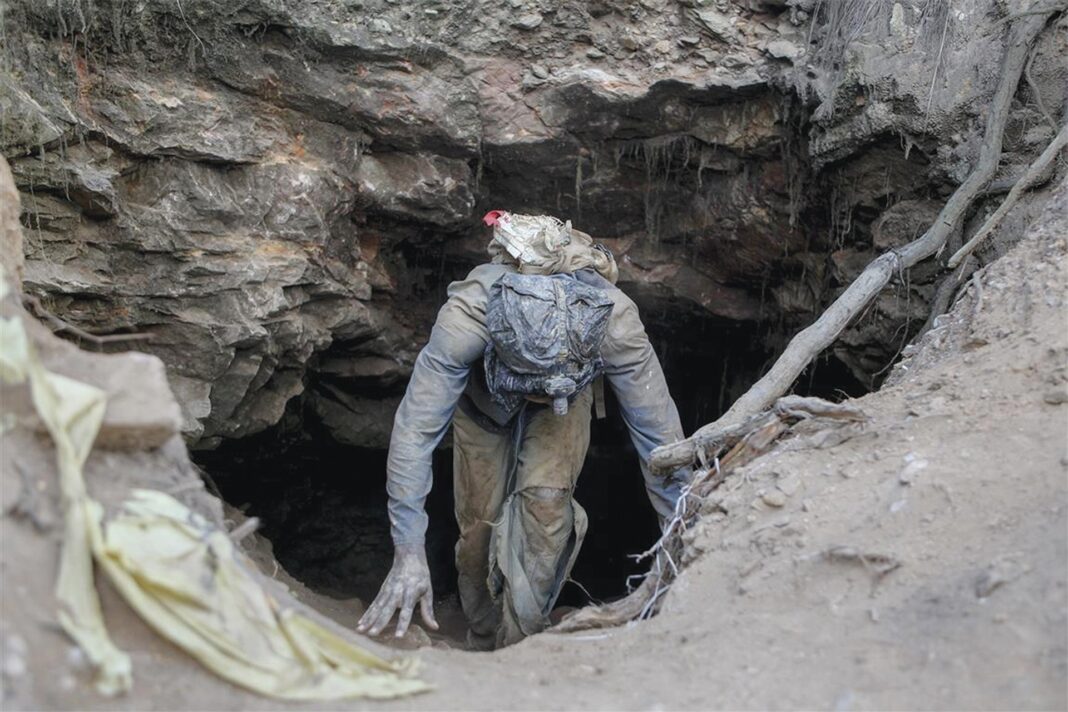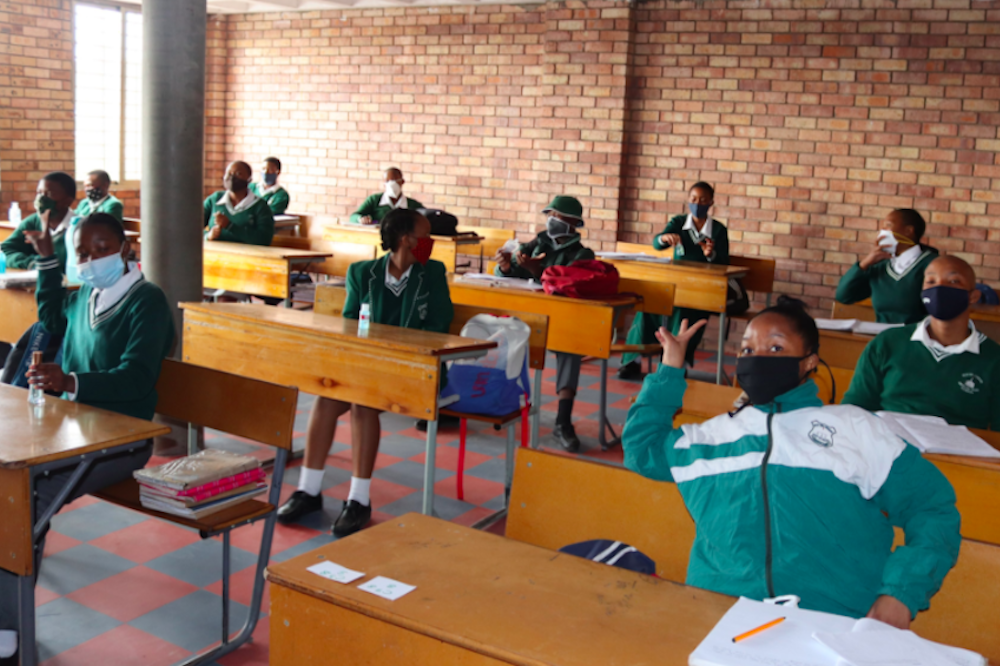By ‘Majirata Latela and Neo Kolane
Families of the illegal miners (Zama-Zama) whose bodies were found in two different places in Orkney, South Africa have pleaded for help in the repatriation of the bodies to Lesotho.
Last week 20 bodies, 11 of which were identified as Basotho illegal miners, were found outside an old and disused mine shaft ventilation in Lawrence Park, Orkney while14 more decomposed bodies were found along Ariston Road near a railway line in Orkney.
The South African Police Service said in a statement that it was evident that the deceased suffered severe body burns and that investigation into the deaths of the 20 were being conducted. It said the post mortems would be made to determine the causes of deaths for bodies found in wrapped white plastic bags.
According to Lesotho’s consul general to South Africa’s North West province Selimo Thabane, the 11 bodies were identified by family members on Monday. He said the DNA tests are to be conducted for identification of the two bodies.
“The government of Lesotho has not prepared assistance to help the families to take those family members back home for burial, the family members will work together with mortuaries to transport the bodies,” Thabane said.
A family member of three deceased illegal miners, Tome Sekara of Motete in Butha-Buthe district has said an amount of M15 000 is needed to repatriate five bodies to Lesotho, two of whom are next of kin of his neighbours.
His plea was extended to the government and anyone who would be able to assist to bring home the bodies to be laid to rest.
Of the three, two are Sekara’s siblings while the other is his cousin. The other two are relatives of his neighbour.
The plan is to bring home the bodies today as they are badly decomposed and have the burial conducted on Saturday morning.
“My brothers left home last year in October to look for jobs in South Africa following their long hunt for employment in Lesotho. After some few weeks while in that country, they reported to have struck luck in employment in construction companies.
“In December they came home for the holidays and then went back again in January. They were still contacting us in the first three months but stopped communicating with us in March. We were wondering about their whereabouts until we received a phone call that they were dead.
“All of us here at home never knew that these people had left the construction job and went to work as illegal miners. We are all surprised but there is nothing that we can do because they are not there to answer any questions,” said Sekara.
“My brother and cousin are survived by their kids and wives who were depending on them for financial assistance. We are very much saddened by the death and only hope that God heals our hearts,” Sekara said.
According to the Mineral Council South Africa, Illegal mining is on the rise in that country and presents challenges that need to be addressed from a range of perspectives.
The activity takes place at abandoned mines and at operating mines with illegal miners often operating under dangerous conditions.
The Mineral and Petroleum Resources Development Act 28 of 2002 (MPRDA) specifically prohibits mining without the required statutory authorisation.
In South Africa, it is illegal to be in possession of unwrought precious metal ore, platinum group metals (PGMs), gold-bearing material and rough diamonds without the required statutory authorisation.
The mineral council in that country has observed that illegal mining and organised crime are inter-related.
Very often, illegal mining is spearheaded by globally connected criminal syndicates. Zama Zamas, as illegal miners are known in South Africa, are often heavily armed, have explosives and, when trespassing on operating mines, set ambushes and booby traps for employees, security personnel and rival groups of illegal miners.
Following a severe drought in 2016, the excessive use of water by Zama-Zamas to process the gold-bearing material became apparent, which directly impacts on local communities.
The council explained that growth in illegal mining could be attributed to the combination of a difficult socio-economic climate and limited resources at the disposal of law enforcement agencies such as police, immigration, border controls and prosecuting authorities.
The minerals council continued: “Many thousands of people are currently estimated to be involved in illegal mining, both directly and indirectly. Miners enter mostly abandoned shafts, travelling as far as 4km underground where they may live for several days at a time, risking their lives and the lives of others.”
Illegal mining has a range of negative social and financial impacts on the state, employees, companies, the mining sector and the country because of loss of revenue, taxes, employment opportunities, capital expenditure, exports, foreign exchange earnings and procurement, among others. It also presents a serious risk to the sustainability of the industry and its ability to contribute to a meaningful future for all South Africans.
According to a podcast from Euronews, Cry Like a Boy on Banna Ba Mamaenara in Lesotho, there is a country in Africa where thousands of men have felt so much pressure to provide for their families that they are employed by criminal gangs as illegal miners, digging for gold in clandestine mines. In some cases, they will never see the light again.
According to the podcast, South Africa is home to the world’s largest gold and platinum reserves, and Lesotho men often emigrate there to be able to provide for their families, most of them traditionally work in the mines sending their money back home.
Without those remittances, a large number of households would fall deeper into poverty. The life of a Lesotho miner in SA nowadays is much harder, mining companies have closed down risky and unprofitable operations and the mining businesses sharply declined,
Many mines have shut down or have been abandoned but people keep digging in the forsaken mines anywhere. So nowadays, the Lesotho miners don’t work in legal mines but in clandestine ones hence them not wanting to talk about it.
One miner from the podcast has stated that he cannot remember when he started working as an illegal miner and the reason he went there to risk his life is because he was struggling and wanted money and went underground.
For a while the miner used to sleep in the bushes until he found someone who would hire him to work underground.
Working as an illegal gold miner some of the dangers he could remember being exposed to include working in the dark for many months without inadequate food and in very hot temperatures, noting that the temperature can go up to 50 degrees Celsius, making the heat unbearable. For that reason, the diggers are forced to work half-naked.









